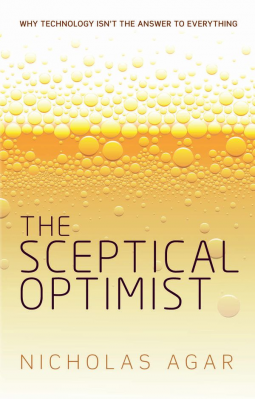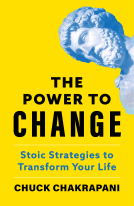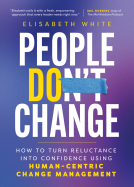
The Sceptical Optimist
Why Technology Isn't the Answer to Everything
by Nicholas Agar
This title was previously available on NetGalley and is now archived.
Buy on Amazon
Buy on Waterstones
*This page contains affiliate links, so we may earn a small commission when you make a purchase through links on our site at no additional cost to you.
Send NetGalley books directly to your Kindle or Kindle app
1
To read on a Kindle or Kindle app, please add kindle@netgalley.com as an approved email address to receive files in your Amazon account. Click here for step-by-step instructions.
2
Also find your Kindle email address within your Amazon account, and enter it here.
Pub Date 1 Sep 2015 | Archive Date 6 Aug 2015
Description
The rapid developments in technologies -- especially computing and the advent of many 'smart' devices, as well as rapid and perpetual communication via the Internet -- has led to a frequently voiced view which Nicholas Agar describes as 'radical optimism'. Radical optimists claim that accelerating technical progress will soon end poverty, disease, and ignorance, and improve our happiness and well-being. Agar disputes the claim that technological progress will automatically produce great improvements in subjective well-being. He argues that radical optimism 'assigns to technological progress an undeserved pre-eminence among all the goals pursued by our civilization'.
Instead, Agar uses the most recent psychological studies about human perceptions of well-being to create a realistic model of the impact technology will have. Although he accepts that technological advance does produce benefits, he insists that these are significantly less than those proposed by the radical optimists, and aspects of such progress can also pose a threat to values such as social justice and our relationship with nature, while problems such as poverty cannot be understood in technological terms. He concludes by arguing that a more realistic assessment of the benefits that technological advance can bring will allow us to better manage its risks in future.
Instead, Agar uses the most recent psychological studies about human perceptions of well-being to create a realistic model of the impact technology will have. Although he accepts that technological advance does produce benefits, he insists that these are significantly less than those proposed by the radical optimists, and aspects of such progress can also pose a threat to values such as social justice and our relationship with nature, while problems such as poverty cannot be understood in technological terms. He concludes by arguing that a more realistic assessment of the benefits that technological advance can bring will allow us to better manage its risks in future.
Available Editions
| EDITION | Hardcover |
| ISBN | 9780198717058 |
| PRICE | US$29.95 (USD) |
Average rating from 10 members
Readers who liked this book also liked:
Cooperating with the Holy Spirit
Rev. Dr. Suzanne Nicholson
Christian, Nonfiction (Adult), Religion & Spirituality
Rev. Dr. Suzanne Nicholson
Christian, Nonfiction (Adult), Religion & Spirituality
Seeking Attention
Dominic Pettman
Health, Mind & Body, Nonfiction (Adult), Politics & Current Affairs
Dominic Pettman
Health, Mind & Body, Nonfiction (Adult), Politics & Current Affairs


















